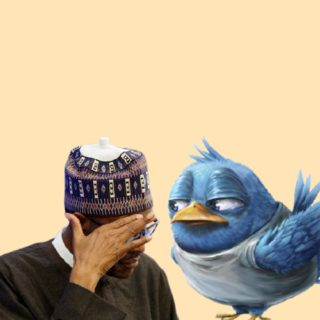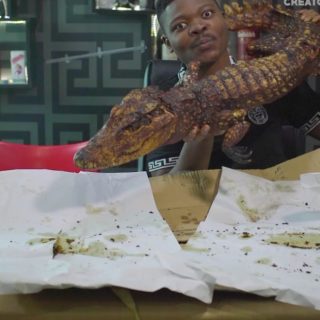The #EndSARS protests was a defining period for Nigerians. Although the protests were majorly sustained by the desire to see justice prevail and a complete end to police brutality, a lot of other factors helped in the continuity of the nationwide protests. Some of these factors include feeding, logistics, and medical services. We spoke to some of the people who volunteered as medical personnel during the protests.
Femi
I volunteered on Thursday, 15th of October, at Alausa, Ikeja. Usually, I work a 72hr shift in my hospital. Three days on, three days off. On my off days I’m usually at home kicking back with African Literature after working out in the morning. I would have rested, but it’s impossible to rest with SARS on our streets. The protest was a way of expressing our displeasure and demanding change, and I couldn’t think of anywhere else to be.
The day before, on Wednesday, I was at the protest but I couldn’t find the medical team. So, on Thursday, I decided to volunteer as a doctor at the protest. As it turned out, there was a medical team on ground. They had always been on ground. But because I was caught up in the crowd on Wednesday, I didn’t see them. When I joined on Thursday, we worked together.
We attended to a man with head trauma, a few patients with ankle sprain and we treated some bruises. Generally, the presence of the medical team at the protests gave the people more confidence to come out en masse because whatever injuries they sustained, we would be there to help them and if critical, we move them to a nearby facility. That provided some sort of reassurance for the protesters.
I have managed far worse cases but being at the protest grounds using my knowledge to help the protests forge on was really fulfilling. It’s one of the moments I don’t think I would ever forget. I wasn’t doing it for money or praise. I was doing it because there was a glimmer of hope and I was using my medicine to keep that hope alive.
Damola
I volunteered in Ilorin. That’s where I live. I’m not in the medical profession; I’m a baker and if the protests didn’t take place, I would have gone about my daily business of baking cakes and catering. But then the protests happened, and I felt the need to do more, so I volunteered as a paramedic. There was an ambulance and a medical team on ground, so no one was injured during the protest. The major work was distributing glucose and water to the protesters, and I assisted in this.

The whole experience made me feel proud, like I was a part of something bigger than me. In my own little way, I was contributing to making Nigeria better. Volunteering was the voice I had, my own way of speaking out so the death of those killed by SARS officials won’t be in vain. I’m glad I defied my uncle and went out for the protests, and if the opportunity to volunteer at any #EndSARS protest shows up again, I will step forward.
Temitayo
I protested in Ibadan on Tuesday, Thursday, Friday. That is 13th, 15th and 16th of October. It wasn’t exactly comfortable. I was preparing for an exam, so I took some time off work and study. Having an exam to write would have been a perfect excuse not to volunteer, but I can’t stand oppression and injustice, so I decided to lend my voice and expertise to the protests. Dr Folu George, the MD of Total Family Specialist Hospital, in conjunction with some other health workers, put together a medical team to be at the protests ground. I joined at the inception of the team.
The team was made up of medical doctors, nurses, pharmacists, medical laboratory scientists, physiotherapists, medical students. The doctors managed the medical cases and referred when necessary. The physiotherapists managed cases involving musculoskeletal injuries e.g sprains. The nurses helped with drug administration and measuring the patients’ vital signs. The medical students helped out with patient care, coordinating the crowd and also the smooth running of operations. The pharmacists also helped with sorting out our drugs for easy dispensing and use. The scientists helped with blood samples and tests. Dr Folu George provided all the necessary materials and the ambulance. She sorted our feeding and logistics too.
I saw patients majorly. I managed medical cases ranging from lacerations, abrasions, fingernail avulsion, musculoskeletal injuries. Many of the injuries were sustained from falls. People sat on cars, and when the brakes were applied suddenly, they fell. If I were to describe it, I would say the presence of a medical team at the protest gave some form of reassurance. And we were welcomed and treated well. Some of the protesters helped pave way to ensure we weren’t stuck in the thick of the crowd.
It felt good to be able to play my part in this movement. Being there gave me a renewed sense of hope for Nigeria. Silence on important matters is no longer the norm, injustice and oppression can no longer be condoned. The failures of the government are being openly challenged and criticised, and all these point to a disruption of the flawed and corrupt status quo. I hope like a phoenix, Nigeria will rise again from the ashes of oppression, bad governance, injustice, and corruption.




